Psychedelic Live Radio Stations
Radio Stations
- CalamarrradioCalamarrradio
- Downtuned Radio
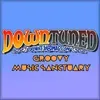
- eSOUND RADIO FM

- Flower Power Radio

- HBR1 I.D.M. TranceponderHBR1 I.D.M. Tranceponder
- Krautrock World

- laut.fm - Shamanic Tunes

- Laut.FM Smokespace

- laut.fm Soundmania
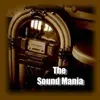
- MDR Sputnik Insomnia

- MDR Sputnik Insomnia (AAC)

- MDR Sputnik Insomnia (low)

- Memory Lane | NTS

- MixLive.ie - Psybient Sunset
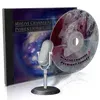
- Path through the Forest
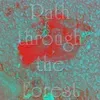
- Psychedelic JukeboxPsychedelic Jukebox
- PsychedelicizedPsychedelicized
- Psychedelicized RadioPsychedelicized Radio
- psychedelik.com - Progressivepsychedelik.com - Progressive
- psychedelik.com Ambient by Yumanpsychedelik.com Ambient by Yuman
- psychedelik.com Darkpsychedelik.com Dark
- Radio OzoraRadio Ozora
- RadiOzoraRadiOzora
- RadiOzora ChillRadiOzora Chill
- RockRadio (MRG)
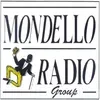
- Rockserwis.fmRockserwis.fm
- Shamanic tunes

- SPARETIRE RadioSPARETIRE Radio
- The World Won't Listen
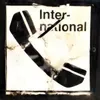
- UanyotUanyot
- Vintage Obscura Radio

Choose a Genre
Psychedelic Music: A Journey Through Sound, Mind, and Culture
Psychedelic music is a genre that emerged in the mid-1960s, primarily in the United States and the United Kingdom, at the intersection of musical experimentation and the cultural upheaval of the counterculture movement. Known for its unconventional chord progressions, experimental sound effects, and intricate instrumentation, psychedelic music became the soundtrack for a generation seeking to explore expanded consciousness, spirituality, and alternative lifestyles. This genre’s quest for new ways to understand and express reality through sound resonates deeply with its era's desire for freedom and self-discovery.
The Birth of Psychedelic Music
The roots of psychedelic music can be traced back to the burgeoning counterculture of the 1960s. As the world was undergoing social, political, and cultural changes, artists began experimenting with new sounds that reflected the evolving spirit of the time. Inspired by the effects of hallucinogenic drugs, many musicians sought to recreate the altered states of consciousness they experienced through their music.
Psychedelic music is marked by its surreal, dreamlike qualities, with an emphasis on creating a unique and immersive listening experience. Bands and musicians began using unconventional chord progressions, layered instrumental textures, and a wide range of electronic effects to produce sounds that were unlike anything that had been heard before. Key instruments in the genre include electric guitars, keyboards, synthesizers, and various effects pedals that allowed musicians to manipulate the sound in novel ways.
Iconic Bands and Sounds
Some of the most iconic bands that defined the psychedelic sound include The Beatles, Pink Floyd, and Jimi Hendrix. The Beatles' album Sgt. Pepper’s Lonely Hearts Club Band (1967) is often considered a hallmark of the psychedelic movement, blending innovative studio techniques with whimsical, surreal lyrics that explored themes of love, consciousness, and the unknown. Similarly, Pink Floyd’s early work, particularly albums like The Piper at the Gates of Dawn (1967), introduced audiences to mind-bending soundscapes and philosophical lyrics that questioned reality and the human experience.
Jimi Hendrix, on the other hand, brought a raw, electric energy to the genre with his virtuosic guitar playing and ability to create sounds that could literally bend the boundaries of music. His iconic track “Purple Haze” is a quintessential example of psychedelic rock, with its swirling guitars and lyrics that speak to the hallucinatory nature of the experience.
As psychedelic music spread, it began to take on various regional and stylistic influences, leading to the rise of several sub-genres, such as acid rock, space rock, and progressive rock. The genre’s roots in the counterculture movement also led it to become closely associated with the experimentation of the time—especially the exploration of consciousness and spirituality through the use of hallucinogens like LSD.
The Evolution of Psychedelic Music
While psychedelic music initially flourished in the 1960s, it did not disappear after the decade ended. Over the years, the genre has continued to evolve, blending with other styles like folk, electronic, and even metal. The 1990s saw a resurgence of psychedelic sounds with the rise of the "neo-psychedelic" movement, which brought fresh takes on the genre from bands like The Flaming Lips, Tame Impala, and Spacemen 3. These newer artists sought to capture the free-spirited, experimental ethos of the 1960s while incorporating modern production techniques and influences from a wide range of genres.
The rise of psychedelic electronic music in the 2000s further extended the genre’s boundaries, with artists incorporating ambient textures, trance-like rhythms, and digital effects to create new and immersive auditory experiences. This modern incarnation of psychedelic music is often described as "psychedelic trance" or "psychedelic ambient," and it continues to be popular in underground and festival scenes worldwide.
Themes and Lyrics in Psychedelic Music
The lyrics of psychedelic music often reflect themes of altered states, spirituality, personal transformation, and the search for deeper understanding. Many songs explore the experience of mind expansion, questioning reality, and the mysteries of existence. Psychedelic lyrics often embrace surreal, poetic imagery, with the intention of evoking a sense of transcendence or heightened perception.
However, psychedelic music isn’t only about escaping reality—it also addresses the political and social issues of its time. During the 1960s, much of the music was a response to the societal norms and values that were being challenged by the counterculture movement. Bands like The Jefferson Airplane and The Grateful Dead frequently intertwined their music with anti-war messages, critiques of authority, and calls for peace and love.
Psychedelic Radio Stations: A Portal to Mind-Altering Soundscapes
For fans of psychedelic music, radio stations dedicated to the genre offer an invaluable resource for discovering new artists, exploring classic albums, and immersing themselves in the diverse world of psychedelic sound. These stations curate playlists that feature a mix of iconic artists and emerging acts, showcasing the evolution of psychedelic music over the decades.
Some popular psychedelic radio stations include:
Psychedelicized Radio: This station offers an eclectic mix of both classic and modern psychedelic music. Whether you're a fan of the original 1960s pioneers or more contemporary artists, Psychedelicized Radio provides a deep dive into the genre’s rich history and its ongoing evolution.
Psychedelic Jukebox: Focusing on the mind-expanding sound of classic psychedelic rock, this station features an array of iconic tracks from bands like The Beatles, The Doors, and The Byrds, alongside lesser-known acts that helped shape the genre.
Deep Nuggets Radio: Deep Nuggets specializes in psychedelic rock and experimental music, offering a mix of obscure gems and well-known classics. The station is a treasure trove for those who want to explore the deeper, more psychedelic side of rock and experimental music.
These stations serve as platforms for both discovering new music and revisiting the foundational sounds of the genre. Whether you’re a seasoned psychedelic enthusiast or a newcomer looking to explore the far reaches of musical consciousness, these radio stations provide a perfect starting point for any journey into the realm of psychedelia.
Conclusion: Expanding Musical Horizons
Psychedelic music is more than just a genre—it’s a cultural movement that continues to push the boundaries of what music can be. By embracing unconventional sounds, exploring the mysteries of the mind, and celebrating spiritual and artistic freedom, psychedelic music invites listeners to venture beyond the ordinary and into the extraordinary. Whether you’re drawn to the experimental soundscapes of the 1960s or the modern twists on psychedelia, there’s always something new and exciting to discover.
Psychedelic radio stations provide the ideal platform for anyone looking to explore this vast and diverse musical landscape. From classic tracks to emerging artists, these stations offer a rich and immersive listening experience, allowing fans to connect with the genre's past while looking ahead to its future.
Psychedelic music is a genre that emerged in the mid-1960s, primarily in the United States and the United Kingdom, at the intersection of musical experimentation and the cultural upheaval of the counterculture movement. Known for its unconventional chord progressions, experimental sound effects, and intricate instrumentation, psychedelic music became the soundtrack for a generation seeking to explore expanded consciousness, spirituality, and alternative lifestyles. This genre’s quest for new ways to understand and express reality through sound resonates deeply with its era's desire for freedom and self-discovery.
The Birth of Psychedelic Music
The roots of psychedelic music can be traced back to the burgeoning counterculture of the 1960s. As the world was undergoing social, political, and cultural changes, artists began experimenting with new sounds that reflected the evolving spirit of the time. Inspired by the effects of hallucinogenic drugs, many musicians sought to recreate the altered states of consciousness they experienced through their music.
Psychedelic music is marked by its surreal, dreamlike qualities, with an emphasis on creating a unique and immersive listening experience. Bands and musicians began using unconventional chord progressions, layered instrumental textures, and a wide range of electronic effects to produce sounds that were unlike anything that had been heard before. Key instruments in the genre include electric guitars, keyboards, synthesizers, and various effects pedals that allowed musicians to manipulate the sound in novel ways.
Iconic Bands and Sounds
Some of the most iconic bands that defined the psychedelic sound include The Beatles, Pink Floyd, and Jimi Hendrix. The Beatles' album Sgt. Pepper’s Lonely Hearts Club Band (1967) is often considered a hallmark of the psychedelic movement, blending innovative studio techniques with whimsical, surreal lyrics that explored themes of love, consciousness, and the unknown. Similarly, Pink Floyd’s early work, particularly albums like The Piper at the Gates of Dawn (1967), introduced audiences to mind-bending soundscapes and philosophical lyrics that questioned reality and the human experience.
Jimi Hendrix, on the other hand, brought a raw, electric energy to the genre with his virtuosic guitar playing and ability to create sounds that could literally bend the boundaries of music. His iconic track “Purple Haze” is a quintessential example of psychedelic rock, with its swirling guitars and lyrics that speak to the hallucinatory nature of the experience.
As psychedelic music spread, it began to take on various regional and stylistic influences, leading to the rise of several sub-genres, such as acid rock, space rock, and progressive rock. The genre’s roots in the counterculture movement also led it to become closely associated with the experimentation of the time—especially the exploration of consciousness and spirituality through the use of hallucinogens like LSD.
The Evolution of Psychedelic Music
While psychedelic music initially flourished in the 1960s, it did not disappear after the decade ended. Over the years, the genre has continued to evolve, blending with other styles like folk, electronic, and even metal. The 1990s saw a resurgence of psychedelic sounds with the rise of the "neo-psychedelic" movement, which brought fresh takes on the genre from bands like The Flaming Lips, Tame Impala, and Spacemen 3. These newer artists sought to capture the free-spirited, experimental ethos of the 1960s while incorporating modern production techniques and influences from a wide range of genres.
The rise of psychedelic electronic music in the 2000s further extended the genre’s boundaries, with artists incorporating ambient textures, trance-like rhythms, and digital effects to create new and immersive auditory experiences. This modern incarnation of psychedelic music is often described as "psychedelic trance" or "psychedelic ambient," and it continues to be popular in underground and festival scenes worldwide.
Themes and Lyrics in Psychedelic Music
The lyrics of psychedelic music often reflect themes of altered states, spirituality, personal transformation, and the search for deeper understanding. Many songs explore the experience of mind expansion, questioning reality, and the mysteries of existence. Psychedelic lyrics often embrace surreal, poetic imagery, with the intention of evoking a sense of transcendence or heightened perception.
However, psychedelic music isn’t only about escaping reality—it also addresses the political and social issues of its time. During the 1960s, much of the music was a response to the societal norms and values that were being challenged by the counterculture movement. Bands like The Jefferson Airplane and The Grateful Dead frequently intertwined their music with anti-war messages, critiques of authority, and calls for peace and love.
Psychedelic Radio Stations: A Portal to Mind-Altering Soundscapes
For fans of psychedelic music, radio stations dedicated to the genre offer an invaluable resource for discovering new artists, exploring classic albums, and immersing themselves in the diverse world of psychedelic sound. These stations curate playlists that feature a mix of iconic artists and emerging acts, showcasing the evolution of psychedelic music over the decades.
Some popular psychedelic radio stations include:
Psychedelicized Radio: This station offers an eclectic mix of both classic and modern psychedelic music. Whether you're a fan of the original 1960s pioneers or more contemporary artists, Psychedelicized Radio provides a deep dive into the genre’s rich history and its ongoing evolution.
Psychedelic Jukebox: Focusing on the mind-expanding sound of classic psychedelic rock, this station features an array of iconic tracks from bands like The Beatles, The Doors, and The Byrds, alongside lesser-known acts that helped shape the genre.
Deep Nuggets Radio: Deep Nuggets specializes in psychedelic rock and experimental music, offering a mix of obscure gems and well-known classics. The station is a treasure trove for those who want to explore the deeper, more psychedelic side of rock and experimental music.
These stations serve as platforms for both discovering new music and revisiting the foundational sounds of the genre. Whether you’re a seasoned psychedelic enthusiast or a newcomer looking to explore the far reaches of musical consciousness, these radio stations provide a perfect starting point for any journey into the realm of psychedelia.
Conclusion: Expanding Musical Horizons
Psychedelic music is more than just a genre—it’s a cultural movement that continues to push the boundaries of what music can be. By embracing unconventional sounds, exploring the mysteries of the mind, and celebrating spiritual and artistic freedom, psychedelic music invites listeners to venture beyond the ordinary and into the extraordinary. Whether you’re drawn to the experimental soundscapes of the 1960s or the modern twists on psychedelia, there’s always something new and exciting to discover.
Psychedelic radio stations provide the ideal platform for anyone looking to explore this vast and diverse musical landscape. From classic tracks to emerging artists, these stations offer a rich and immersive listening experience, allowing fans to connect with the genre's past while looking ahead to its future.